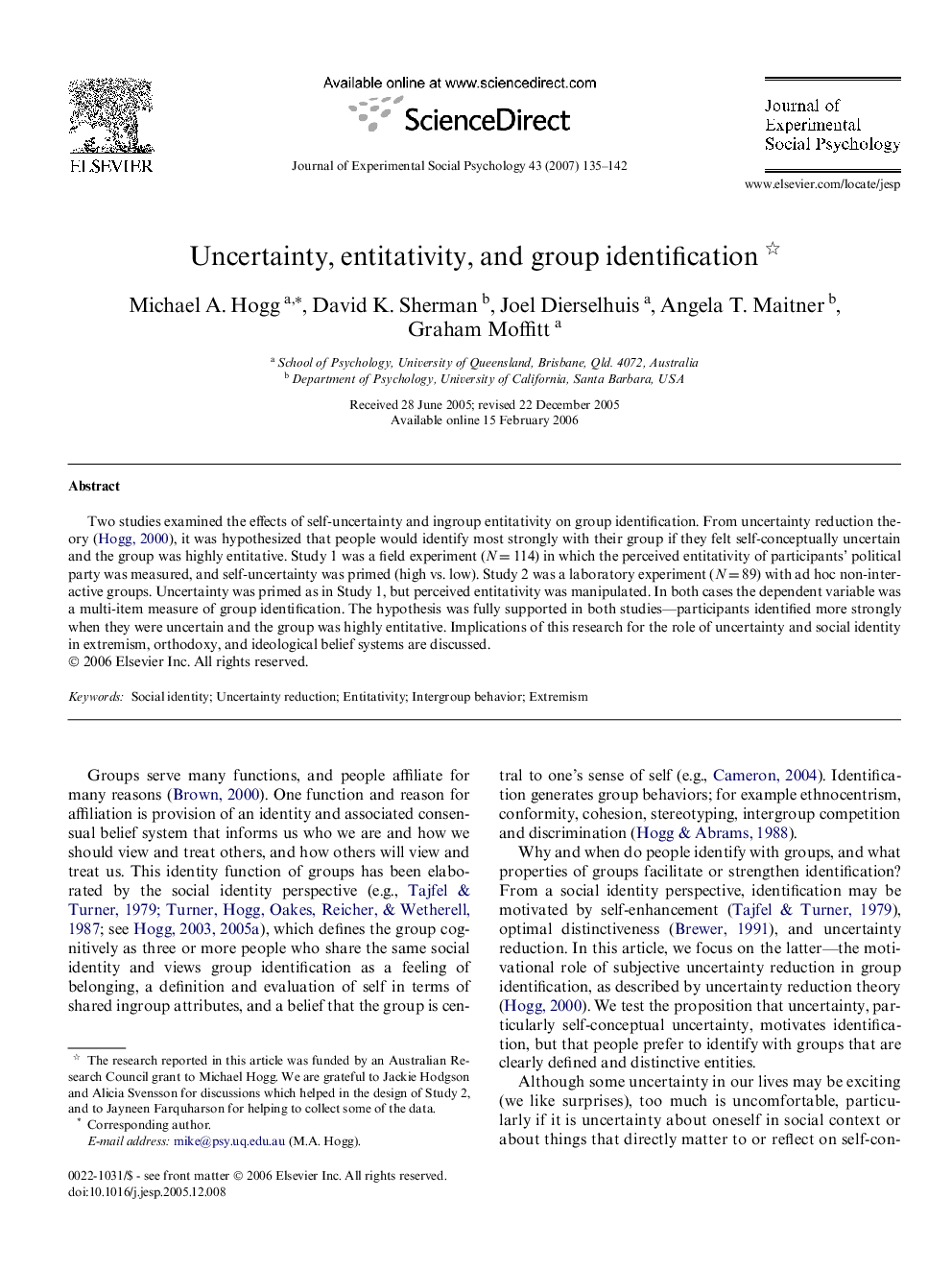| Article ID | Journal | Published Year | Pages | File Type |
|---|---|---|---|---|
| 949043 | Journal of Experimental Social Psychology | 2007 | 8 Pages |
Two studies examined the effects of self-uncertainty and ingroup entitativity on group identification. From uncertainty reduction theory (Hogg, 2000), it was hypothesized that people would identify most strongly with their group if they felt self-conceptually uncertain and the group was highly entitative. Study 1 was a field experiment (N = 114) in which the perceived entitativity of participants’ political party was measured, and self-uncertainty was primed (high vs. low). Study 2 was a laboratory experiment (N = 89) with ad hoc non-interactive groups. Uncertainty was primed as in Study 1, but perceived entitativity was manipulated. In both cases the dependent variable was a multi-item measure of group identification. The hypothesis was fully supported in both studies—participants identified more strongly when they were uncertain and the group was highly entitative. Implications of this research for the role of uncertainty and social identity in extremism, orthodoxy, and ideological belief systems are discussed.
